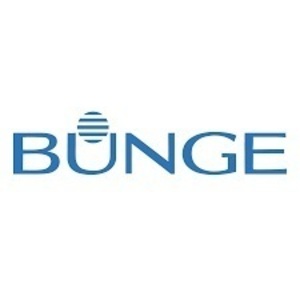Chevron, Bunge partner on renewable fuel feedstocks

September 7, 2021
BY Bunge
Chevron U.S.A. Inc., a subsidiary of Chevron Corp., and Bunge North America Inc., a subsidiary of Bunge Ltd., announced Sept. 2 a memorandum of understanding (MOU) of a proposed 50/50 joint venture to help meet the demand for renewable fuels and to develop lower carbon intensity feedstocks.
Upon finalization of the joint venture, Chevron and Bunge’s partnership would establish a reliable supply chain from farmer to fueling station for both companies. Bunge is expected to contribute its soybean processing facilities in Destrehan, Louisiana, and Cairo, Illinois, and Chevron is expected to contribute approximately $600 million in cash to the joint venture. Through the joint venture, the two companies anticipate approximately doubling the combined capacity of the facilities from 7,000 tons per day by the end of 2024. The joint venture would also pursue new growth opportunities in lower carbon intensity feedstocks, as well as consider feedstock pretreatment investments.
Advertisement
“As the world’s largest oilseed processor, we are pleased to expand our partnership with an energy industry leader to increase our participation in the development of next generation, renewable fuels. Together, we share a commitment to sustainability and reducing carbon in the energy value chain. This relationship with Chevron would enable Bunge to better serve our farmer customers by accessing demand in the growing renewable fuels sector,” said Greg Heckman, Bunge CEO.
Under the proposed joint venture arrangement, Bunge will continue to operate the facilities, leveraging its expertise in oilseed processing and farmer relationships to manage origination and marketing of meal and plant-based oil. Chevron would have offtake rights to the oil to use as renewable feedstock to manufacture diesel and jet fuel with lower lifecycle carbon intensity, in addition to providing market knowledge and downstream retail and commercial distribution channels.
“Through our commercial work with Bunge, we have come to appreciate their strong company culture, their strategic desire to advance the production of lower carbon fuels, their commitment to capital discipline and promotion of sustainable agriculture in their supply chains,” said Mark Nelson, executive vice president of Downstream & Chemicals for Chevron. “Chevron’s proposed joint venture with Bunge positions us to expand into the renewable fuel feedstock value chain, which will advance our higher returns, lower carbon strategy.”
Advertisement
The creation of the proposed joint venture is subject to the negotiation of definitive agreements with customary closing conditions, including regulatory approval.
Related Stories
The USDA maintained its outlook for 2025-’26 soybean oil use in biofuel production in its latest World Agricultural Supply and Demand Estimates report, released Aug. 12. The forecast for soybean oil prices was also unchanged.
U.S. soybean production for 2025 is forecast at 4.29 billion bushels, down 2% when compared to last year, according to the USDA National Agricultural Statistics Service’s latest monthly Crop Production report, released Aug. 12.
Marathon Petroleum Corp. on Aug. 5 released second quarter financial results, reporting improved EBITDA for its renewable diesel segment. The company primarily attributed the improvement to increased utilization and higher margins.
Chevron Corp. on Aug. 1 confirmed the company started production at the Geismar renewable diesel plant in Louisiana during the second quarter after completing work to expand plant capacity from 7,000 to 22,000 barrels per day.
California’s new specified source feedstock attestation requirement: A critical new compliance step for renewable fuel producers
As of July 2025, California’s SCFS requires renewable fuel producers using specified source feedstocks to secure attestation letters reaching back to the point of origin. This marks a significant shift in compliance expectations.
Upcoming Events










